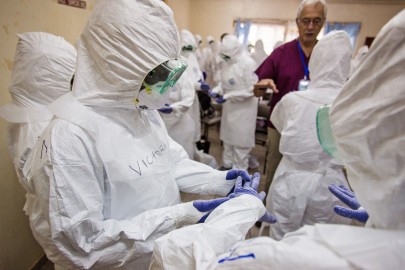World-wide alarm has been sounded for the fast pace in which Ebola is spreading with the global death tally surpassing 4,500 people this week. Top World Health Organization (WHO) official Isabelle Nuttall told a Geneva press conference that fifteen countries in the zone most affected are being prioritized to receive more help in areas such as prevention and protection.
She said that transmission of the Ebola virus remained intense in Liberia, Sierra Leone and Guinea, the three countries at the center of the Ebola outbreak with cases doubling every four weeks. Countries included targeted by the WHO’s action plan are Benin, Burkina, Faso, Cameroon, Central African Republic, Democratic Republic of Congo, Gambia, Ghana, Mauritania, Nigeria, South Sudan and Togo as well as the four nations directly bordering the worst affected area that include the Ivory Coast, Guinea Bissau, Mali and Senegal.
Action in these areas will include rapid response teams, engaging at a community level, training in infection prevention and protection and having laboratories in place.
Also reacting to the crisis, EU health ministers also agreed to try to co-ordinate measures taken at EU airports.
In Greece, Health Minister Makis Voridis announced that 30 health inspectors will be sent to migrant detention centers as a preventative measure against Ebola spreading to Greece. Mr. Voridis is also in favor of boosting an information campaign for and information exchange with other countries through the creation of a database. Funding to help combat the disease has also been supported by Greece, Cyprus and Italy.
As yet, thermal cameras won’t be placed at airports as had initially been endorsed by the Greek Health Ministry even though the United States, the United Kingdom and France have applied this measure.
Ask me anything
Explore related questions





